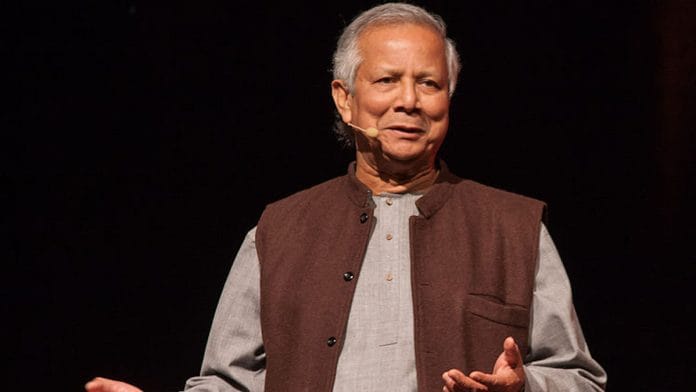Over the past half-century, South Asia and its influential diaspora have been the source of some of the world’s great entrepreneurs and business leaders. The modern world increasingly depends on their contributions. Enlightened government policies, in India and abroad, accelerated their rise and their contributions to the world economy and society at large.
While many of those entrepreneurs built profitable businesses at the cutting edge of modern technology that made them (and others) very wealthy, others focused their talents on social entrepreneurship and innovation. They built world-class institutions that helped solve social and environmental problems in creative ways that could be scaled to positively impact millions. Some of the companies they created were for-profit, some non-profit, and other hybrid in nature. What they all had in common was their innovative thinking about problems like poverty, illiteracy, ill-health, and climate change that leveraged market forces, technology and the idealism of individuals and groups to change lives and indeed, entire nations.
One of the stars of this community of entrepreneurs who has shined the brightest is the Bangladesh Nobel Peace Prize laureate Muhammad Yunus. Starting in the mid-1970s, just a few short years after returning to post-independence Bangladesh from the comfort of being a university teacher in the United States, he has painstakingly created dozens of organisations that have done a world of good: not only for Bangladesh, but for the world. Other leaders studied his models and adapted them in places as diverse as the Philippines, the United States, Kenya, and India. His influence on the thinking and work of a generation of traditional and social entrepreneurs is undeniable.
Of course, he is best known for creating the Grameen Bank: first as a pilot project, and later as the world’s first bank, serving the poor women with the majority owned by poor women. Today we take microfinance – the ability to provide financial products to the world’s poor on a commercial basis for their and society’s benefit—as a given. But until Yunus showed how it could be done on a massive scale, the ideas on which modern microfinance rests appeared absurd. In this and other ways, he turned what was once unthinkable into something that is obvious and taken for granted. No amount of revisionist history can obscure his role in building Grameen Bank from day one into a world class institution that has shaped the global economy from the grassroots up. Grameen Bank under his leadership has successfully demonstrated that a microfinance Institution can be a viable business. This Is validated by the fact that the recovery rate of Grameen Bank was over 96%, even though their loans do not have collaterals as security.
But many people are unaware that his work has gone far beyond microfinance. Over the past two decades, he has designed a model for impact-first entrepreneurship that he calls “social business” and then created dozens of organisations that apply this approach to improving health care, education, the environment, and the positive role that sports can play in improving society.
Incredibly, at age 84 he remains as productive as ever, travelling the world from his home in Bangladesh to inspire a new generation of young entrepreneurs to create their own social businesses and challenging corporate leaders to incorporate his model into aspects of their companies.
In today’s troubled world, we need Yunus and his ideas more than ever. This is true in India, other major economies, and smaller, less developed countries and regions. Supporting Yunus in this mission is crucial, particularly in enabling him to use his influence, ideas, and energy for the common good, and therefore maximise the good he can do for people, institutions, governments, and academia. My ardent hope is that any free society that hopes to benefit from Yunus’s extraordinary work, will allow him to continue his great work unencumbered.
Business leaders often talk about how society can create an enabling environment for commercial activity. The same is true for social entrepreneurship. We must formulate an agenda in India and beyond that encourages social business, impact investment, social stock exchanges, and the like while also celebrating and supporting leaders like Yunus at the pinnacle of their creative powers and the kinds of idealistic entrepreneurs incubated and supported by organisations like Action for India that seek to build a thriving ecosystem for social entrepreneurship.
Over the next two weeks, we will see the world coming together to celebrate the world’s greatest athletes and what is possible when nations set aside differences and promote excellence under a defined set of rules. Yunus’ influence on the Paris games will be on view for all to see. He proposed, for example, that the Olympic Village be designed in a way that once the games were complete, the housing and related infrastructure would be turned into affordable housing for low-income Parisians. The organisers adopted his idea and have made him one of their honoured guests and partners.
Let us all focus our energies on turning other human endeavours into socially progressive ones, as Yunus has done with banking, sports, and many other fields. A world of impact and progress awaits.
NR Narayana Murthy is the founder of Infosys Limited. Views are personal.







Md. Yunus is a wolf in a sheep skin. For the sake of his own political ambition he become part of large conspiracy and lead to the murder of hundreds of Bangladeshi. The country will perish in next 3 years and Yunis will be prosecuted for this mass murder